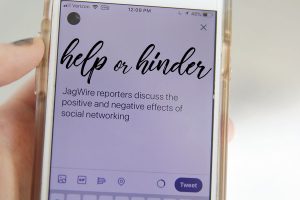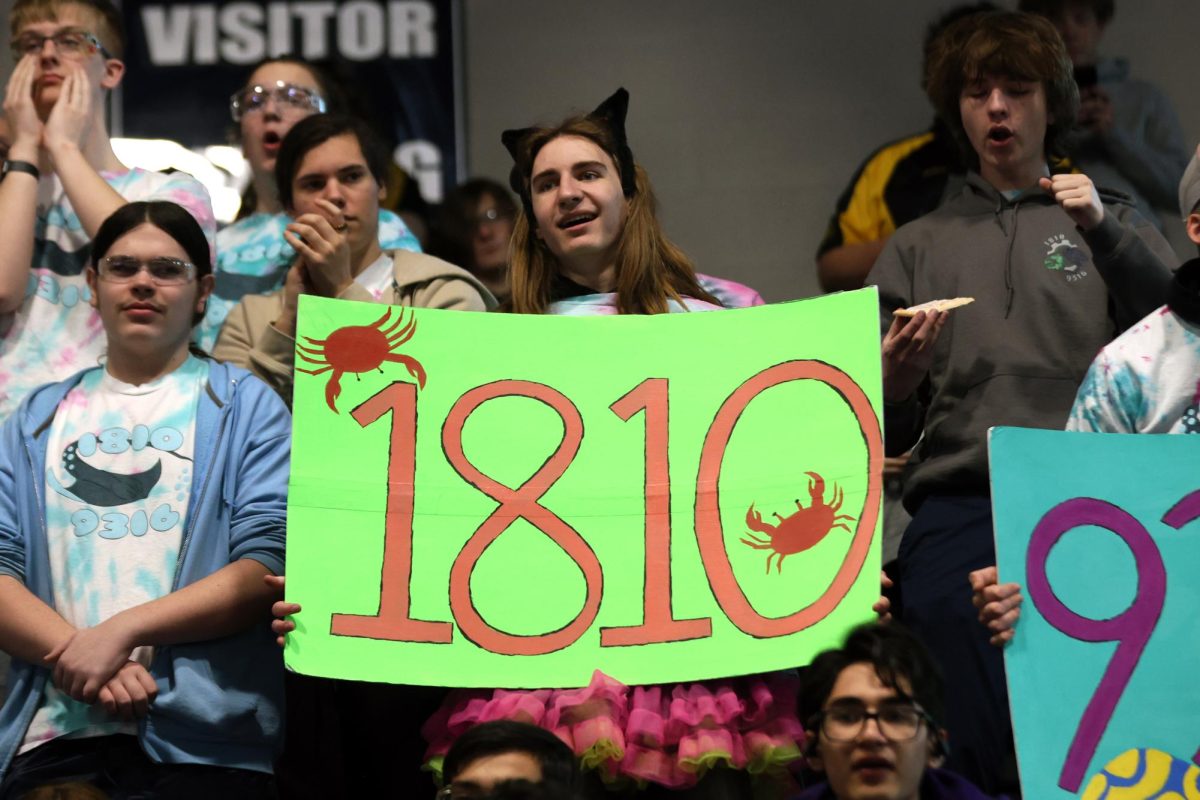Social media comes with unique advantages
Social media has taken communication and outreach to new heights
November 10, 2017
In just a few years, all current Mill Valley students will have graduated. While phone numbers and promises of checking in will be exchanged, the likelihood of maintaining most of the relationships you build drops after graduation. Social media has provided a quick fix to that problem, letting people reach a wider audience that would have never been possible otherwise and making information more accessible than ever.
I should say upfront that I’m an avid social media user, to a fault. I know that social media is detrimental to me in some ways. However, the accessibility of these platforms has paved the way for benefits that far outweigh the cons.
Nearly all of my family lives overseas. While I visit them every few years, I don’t have the opportunity to communicate with them as much as the average kid. It’s hard to know where most of them are at in their lives, especially because I’m one of the youngest family members, but being connected with my cousins on Facebook and Instagram has given me a window into their lives that I never would have gotten otherwise. Furthermore, Skype has let us talk to each other more easily than just the phone. I will never forget seeing the pure joy that came from my mom and my grandmother as they talked through the computer screen.
Social media has also changed communication on a larger scale. Spreading information about which areas are hit during natural disasters, missing persons or even basic updates on events has never been quicker or more efficient than it is now. As Hurricanes Irma and Harvey impacted the U.S. and Puerto Rico, Twitter put me and many others on the forefront of impacted areas, letting me hear the stories of people that would have otherwise gone forgotten. Social media amplifies the words of those who may not have a voice otherwise.
Facebook and Twitter also provide easy and quick ways to get news updates. Social media has definitely pushed fake news to the forefront, but it has also let news reach wider audiences.
On that note, social media has also let people organize social movements or fight for change in completely unprecedented ways. For example, social media started the protests against the Dakota Access Pipeline and allowed communities that would be negatively impacted (such as the Standing Rock Sioux) to receive help they otherwise would not have had access to. Similarly, both the Women’s March and Black Lives Matter started on Facebook and rippled outwards, turning into a national movement. These were pushed by people whose voices were largely invisible and marginalized, but social media has created space for diversity to flourish.
However, I can’t overlook the role that social media played in pushing forward protests like the one hosted by white supremacist groups in Charlottesville, Virginia. Social media’s role in organizing movements for social change is a dual-edged sword.
Because of how common social media has become, it has never been easier to learn new skills or be informed about what’s happening in the world. YouTube platforms, such as CrashCourse or VSauce, have made education more accessible to anyone with an internet connection. So many people are unable to receive a good education or struggle with learning, but there are so many avenues to discovering new skills and improving yourself. While online resources can’t replace physical ones, people who don’t have access to all the things we do can get so much more from the world around them — from artwork to a better understanding of science.
Social media has also made me a better person. I have discovered so many diverse perspectives through the internet that I can say, without a doubt, that I would have remained largely ignorant of any point of view that wasn’t my own if I hadn’t stumbled upon platforms like YouTube or Tumblr. Even if I disagree, being able to read posts by other people has helped me become a more empathetic and kinder person. I also love to read analysis and interpretation of music, TV, books and other narrative forms of media, but I never would have discovered or developed my own critical reading skills if not for blogs that analyzed books and shows.
Advertising and building an audience has also changed due to new networking platforms. When I published my book two years ago, I had basically no way to promote myself or share anything about it besides word of mouth because it was self-published. However, through social media I had the opportunity to share my work with people all over the world. While traditional publishing of any kind has a wider audience, social networking has made it possible to find new audiences and create stories that explore topics that you might not see in mainstream media.
Finally, as a writer and avid reader, I follow a ton of poetry and writing accounts on Instagram and Twitter. On these platforms, I see new writing and music styles growing and finding a wider audience, plus more and more resources about how to learn different skills being shared. Arts have been growing and developing in new directions, leading to more and more innovation in multiple fields. Creativity is fueled by an ongoing dialogue that connects us to voices from all over the world.
While there are definite downfalls to social media, the accessibility of these platforms lets anyone with an internet connection experience so much more of the world than ever before. Creativity and communications grow through the use of different platforms. Social change and education become more accessible to anyone with an internet connection, letting more people be informed and be engaged in the world around them. Social media is powerful. The advantages that come with it are only going to grow.















